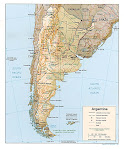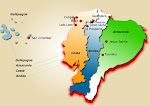Friday: Sowed Sangre de Gallina seeds for reforestation in the daytime, and went to the ecuavolly court in the evening to watch Verena and Antonio make a fire show.
It was Antonios first time with fire, and I think he was crapping himself (I would have been), but he did a really good job. Especially since just before he started he was stung twice in the back by a Devil´s Horse wasp. Not as bad as for Jonas, though, who was stung directly on lip, drew blood, and gave him a boxer´s pout.

Saturday: Antonio took us on mine and the Verenas last hike, along sendero verde to dos bocas and along the river to come back on sendero mono. He tested us on the phenology of the forest, betting beers on right answers. I knew a few patchy bits of information, but never the whole set of scientific name, family name, and common name. I could, however, identify and sort the seeds that we needed to collect along the way for future reforestation projects.

I hung back on my own for a little while at the river, knowing that I would not be seeing this now familiar beauty again, or hearing the rippling waters and the birds in the trees.

We went to La Yecita in the evening, and everyone danced, even the gringo men. We found some coputating scarabs, which distracted us from dancing for a little while.

When we got back to Bilsa at around 4am six of us went down to the rio duche to take a candle lit shower, and as I headed back with kleine Verena I saw an armadillo cross my path right next to the house.
Sunday: Made pancakes with Julieta, did laundry.
Gave an English lesson to Alejandro in La Yecita. Community members were beginning to gather to play and watch football, and some of the women came and were interested in taking part. If only I had started doing this sooner, I thought, or if I had a real knowledge of a teaching technique, I could have come and given casual lessons to whoever in the community wanted to learn. I came back to Bilsa on a real high, for the first time in my life actually wanting to be a teacher, and then set off with the others to head to the waterfall in rio duche and have a shower in bikinis.
In the evening I took a break from playing fiero to go to the outhouse, and when I was washing my hands I heard an awful noise that sounded like a small pig screaming, and some hurried shuffling of earth and leaves. Suddenly the armadillo rushed out from under the house, shortly followed by Baloo, who managed to catch it and was grabbing it with his mouth when I shouted him to stop. We got Baloo away and inspected the poor creature. It had a deep wound in its back that we suspected had come from something other than Baloo, and it didn´t look like it was going to survive. We weren´t going to kill it, on the off chance that it would survive, so Verena and Edwardo took it deeper into the jungle so that at least Baloo wouldn´t be able to bother it. I finally managed to fulfil my promise of sending a picture of a real life armadillo to Stuart, but I am sorry that it had to be this way.

Monday: Machete work and barbed wire. Fixing the perimiters of the reserve. Mixing compost. I went down to take a shower in the river, and just as I was about to step under the stream that pours down from the river above, I saw some movement up in the river and there were various commonbirds, and one motmot sat on a branch waving its bizarre pendanted tail from side to side about 3m in front of me. I stood in the river watching it for about ten minutes until it moved a little out of view, and I was getting cold so I rushed the shower and lifted myself up the steep steps back to the house to get the bird book.
In the evening I played fiero for the last time, and won about a dollar. It would have been more I I hadn´t bet 2 dollars on a fiero of 3, only to find that Julieta had fiero of 7, but that´s the way the game evens things out.
Tuesday: Finished reading Cumanda in the morning. Antonio,when explaining some details of Spanish that I didn´t understand, had also told me the ending of the story. Thanks, I said, now can you tell me what is going to happen in my story? No I can´t, I haven´t read that one, he said.
Planted around 450 seeds of Sangre de Gallina and 100 of Billiar Colombiano in the reforestation platabandas on sendero piscinas, and then took a detour to cavort in the waterfalls with the Verenas. Took some photos and fell over alot. Got bruised, but not as much as Verena Grande, who fell from a height when we were climbing off trail to get down to the pozo, and tore up her bottom and thigh quite impressively. Made ´jungle bikinis´out of palm and acracia leaves and bits of fern, and arrived back at the station two hours late for lunch.
Did some final bits of laundry to clean some clothes to leave behind, showered in the river and then went to sit in the medicinal plant garden for the last time, watching the silouhettes of the cecropia deepen above me into the black of the last night in the jungle.
After dinner there was cake to share around and songs were sung before setting off to La Yecita, where we played pool and joked and danced as usual, except for the that on this night the clouds and the fog cleared for us to see the stars. Antonio and Verena Grande did a fire show.
My last dance was with Antonio, a dance of the sierra with raised knees and him dancing around me and coralling me with my scarf. The last of us headed back to Bilsa at around 4.30am. After everyone else was in bed I spent a few minutes of pensive shuffling at the doorway of the volunteer house, and at one point I almost opened the metal shutter to go out and head to the carpenteria, but eventually decided that it was probably best not to take that risk, and went upstairs instead.
Wednesday: After about two hours of sleep took my bags downstairs to wait for the mule to arrive. Hugged everyone goodbye, and only welled up when it got to Winter and Antonio, at which point I turned and headed up the path with the sack on my back and without looking back.
Rode half the journey from Bilsa to La Ye chatting to Alejandro and glad that the plastic bag I was sitting on might provide a barrier to catching ticks from the horse with no name. Walking the rest of the journey through the mud, chatting to the Verenas about triangles of rejection and affirmation at the Bilsa biological station.
I finally got to see the Subcentro de Salud (Health Centre), and smiled at how fitting this moment of departure was - to meet Andy, the medical volunteer I met at the Lagoon on my first evening before hiking into the jungle, to see the best view of the whole lagoon from the subcentro terrace, and to climb to the top of the unfinished water tower to look back on the hills of Bilsa in the distance.
This is a picture of La Ye, the gateway to Bilsa (a 31/2 hike away). It has electricity and mobile phone signal, and trucks can reach it from the road.

We got on the top of the ranchero with our bags, and laughed and bounced along the unsteady camino from La Ye to the main road, and the arrived in Quininde tired and late and hungry. Got an amuerzo from the regular place and then sat on the curb resting our eyes until it was time to meet Pato, chatting to the man and girl whos family owned the dressmakers there, who brought us iced water and dulces de manabi.
We met Pato and shared cervezas on the patio furniture outside his hostel. He told us about his bus heist, and we told him what to expect in Bilsa. We played a very sleepy game of cuarenta. Actually, I woke up to play my turns while the others chatted, so exhausted I was that I could literally not keep my eyes open for three seconds.
Caught the 1am bus to Quito, and slept instantly and uncomfortably balancing myself against two bags, a hat, a large woman with elbows and a seat that refused to recline.
Thursday: Arrived in Quito at 6am and went straight to bed. Then walked around Quito alone without fear for the first time, and bought the most repulsive gift imaginable for someone who will be only just a little disappointed it isn´t a tsantza.
Met a Luis and went for a chinese, then went back to bed for the afternoon and night, still exhausted.
I am ready and happy and looking forward to coming home.
Now I am planning to pretty much sleep until I arrive in Manchester, because there are too many things that I want to do when I get there for rest to be on the agenda.
Buesnos noches, y hasta muy pronto.xx.
 He doesn't even notice that his target has hidden behind a rock. He just keeps running until the ground beneath his feet runs out. He has been running on sheer air and despiration, but it's too late now. He claws at the sky but there's only one way to go, and it isn't up. And so he falls off the edge of the screen with a high pitched whistle, followed by a crash and a mushroom of dust.
He doesn't even notice that his target has hidden behind a rock. He just keeps running until the ground beneath his feet runs out. He has been running on sheer air and despiration, but it's too late now. He claws at the sky but there's only one way to go, and it isn't up. And so he falls off the edge of the screen with a high pitched whistle, followed by a crash and a mushroom of dust.









































